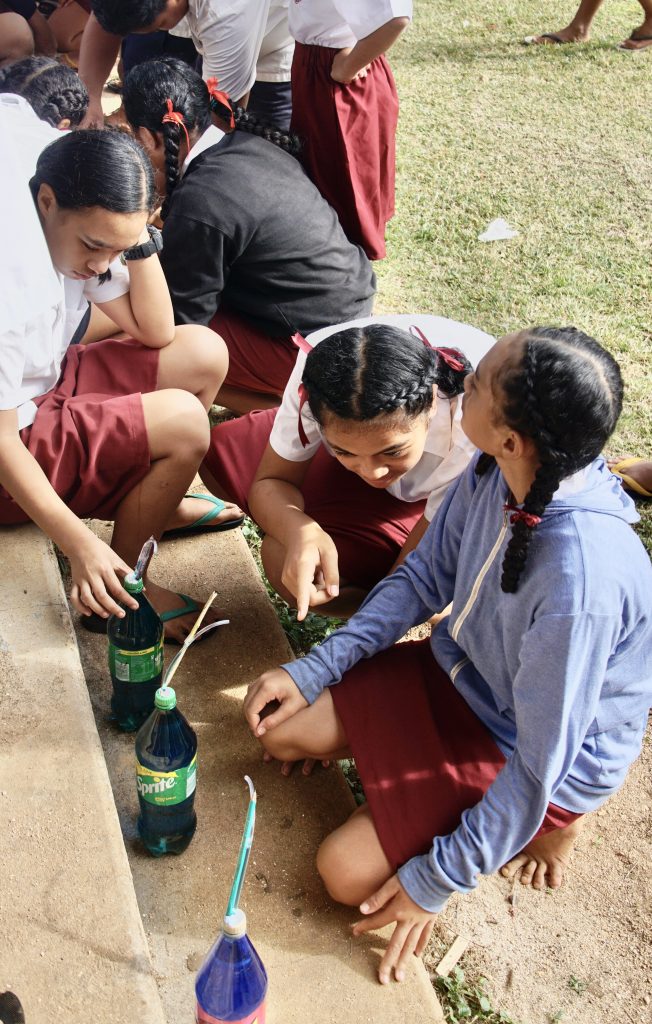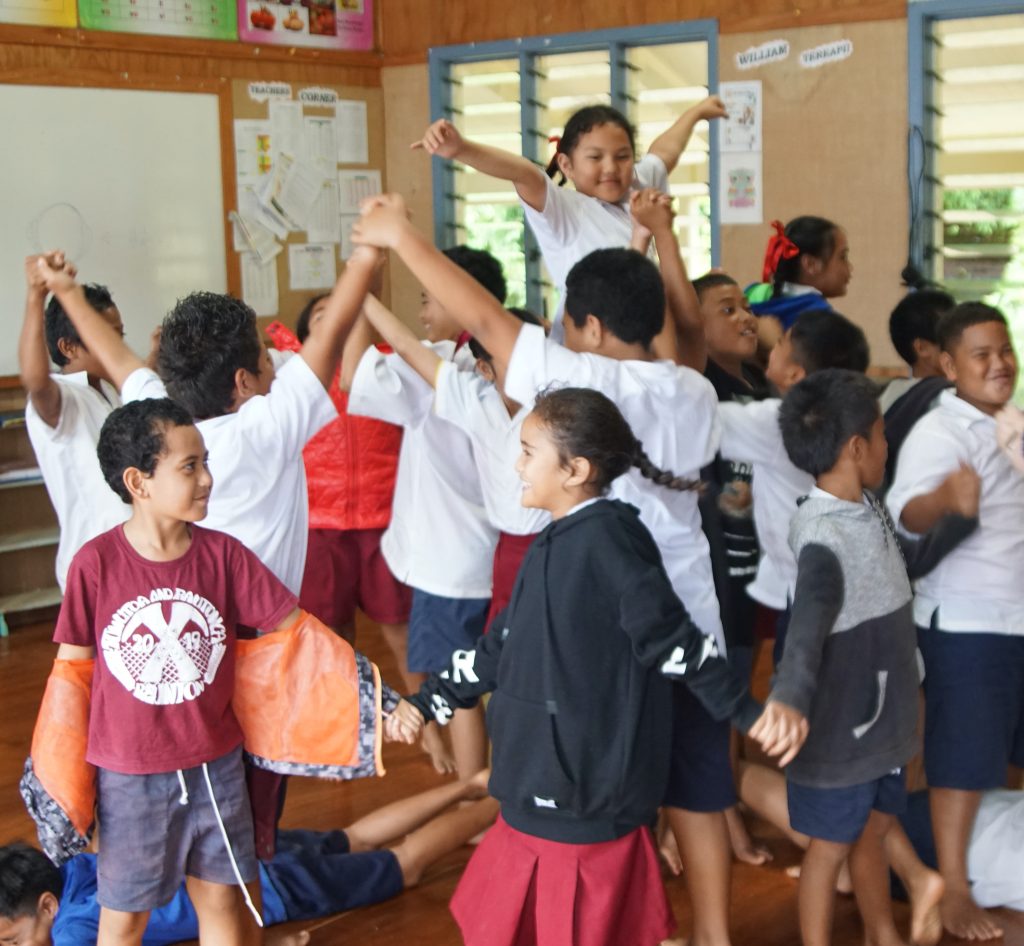Through the SEREAD educational program, Argo’s mission to help understand the ocean’s role in the earth’s climate is shared across generations.
On the island of Mangaia of the Cook Islands in the south Pacific, the local community is highly concerned about the current and future impacts of climate change. The island of Mangaia is the second largest in size among the Cook Islands and formed roughly 18 million years ago, making it one of the oldest islands in the Pacific. It is threatened by sea level rise, cyclones, and increasing salinity of the underground water. Among the approaches Mangaia is taking to increase resilience to climate change, education is a high priority.
At the invitation of the Principal Michael Papatua of the Mangaia School, Keith Hartle and Carol Young are collaborating with local teachers to provide climate education curricula for students aged 10-18 years old. Keith is a retired teacher from Dargaville High School, New Zealand and Carol is a retired teacher and advisor from University of Auckland, New Zealand. Together, they form the core educational team for SEREAD, a program that develops regionally-relevant ocean science educational modules. During recent trips to Mangaia they have created resource materials and conducted teacher training workshops.
SEREAD resources help to teach science in a hands-on approach using examples that build on Pacific students’ everyday observations and experiences. SEREAD, which stands for Scientific Educational Resources and Experience Associated with the Deployment of Argo profiling floats in the South Pacific Ocean, has developed educational units that use scientific data collected by a modern ocean observing technology known as Argo. Argo floats are robotic instruments that drift with ocean currents and move up and down between the surface and seafloor, collecting data on the characteristics of the ocean like seawater temperature and salinity. By connecting with students through SEREAD, Argo’s mission to help understand the ocean’s role in earth’s climate is shared across generations.


During the last trip to Mangaia, Carol and Keith noted “All the teachers are aware of the changes happening on Mangaia, and their Principal wants climate change to be a unifying theme through the students’ learning”. Beyond the sciences, there has been discussion and interest from local teachers to integrate the program into social studies, math, and English. The reach of SEREAD also has the potential to expand geographically, with an interest from the teachers to bring the curricula to outer island schools- specifically Atiu, Mauke and possibly Mitiaro.
The committed efforts of SEREAD’s educators, Carol and Keith, and the Ministries of Education, teachers and principals that engage with the Program has resulted in the implementation of new climate-focused education modules across the Pacific. SEREAD has held teacher training workshops in the Cook Islands, Tuvalu, Kiribati, New Zealand, Mauritius, Pohnpei, Samoa, Hawaiʻi, and Tonga since its inception in 2004. Support from NOAA’s Global Ocean Monitoring and Observing Program helps to pay for the cost of travel and compensation for the SEREAD educators.
Understanding the full extent of causes and impacts of climate change is a challenging puzzle for all of humanity, including scientists, politicians, economists, teachers, and parents alike. Providing students with the tools to observe, recognize, and discuss these changes is key to empowering the next generation of climate-aware leaders.